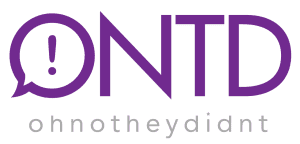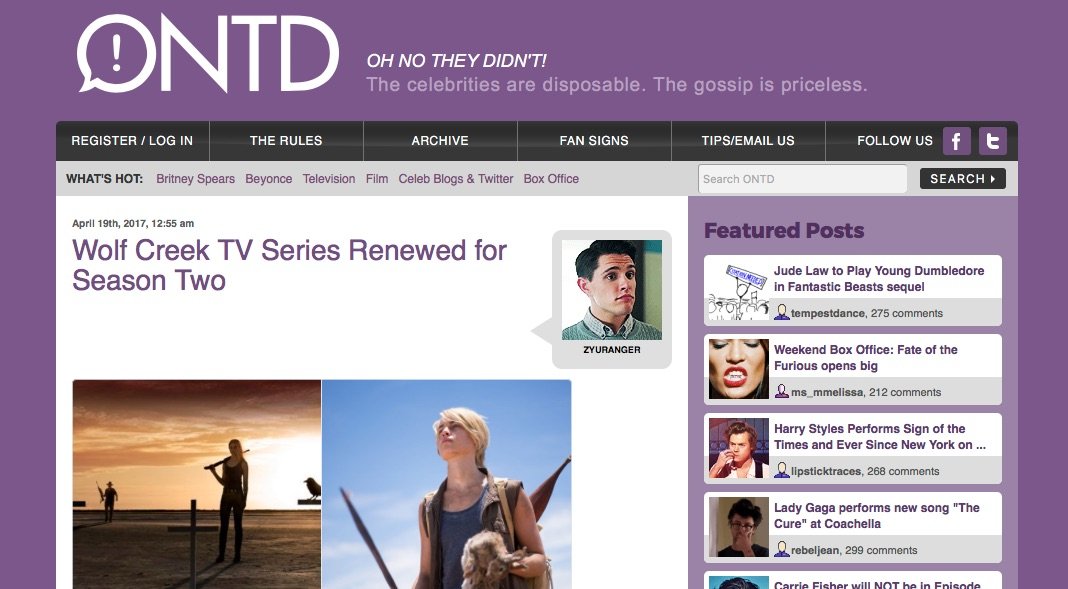How LiveJournal Could Change DMCA Safe Harbor
When a live journal becomes a live issue...
 LiveJournal is not a social network people think about when pondering sites and companies that are revolutionizing the web, especially in the U.S.
LiveJournal is not a social network people think about when pondering sites and companies that are revolutionizing the web, especially in the U.S.
Though big in the early 2000s and still relevant in Russia, where its owners are based, the service has largely been passed by in the U.S. in favor of Twitter, Facebook, WordPress and other social media/blogging platforms.
However, a recent lawsuit against LiveJournal have not only put the service back in the spotlight in the U.S. but could, depending on the outcome, have a drastic impact on the Digital Millennium Copyright Act (DMCA) safe harbor provisions.
Those are the same provisions that countless other sites, including YouTube, Facebook and Twitter, rely upon every day to avoid copyright liability. However, more to the point, it could have an impact on all online communities, including forums and community blogs, that make use of moderators.
While there’s a long way to go before we know for certain what this case will actually change, now is a great time to look at the possible consequences and start thinking about what they could mean.
Mavrix v. LiveJournal: A Primer
 LiveJournal is a blogging platform that primarily allows users to create journals, upload posts and text. However, as part of the site, LiveJournal operates a popular celebrity gossip community named “Oh No They Didn’t!” (ONTD).
LiveJournal is a blogging platform that primarily allows users to create journals, upload posts and text. However, as part of the site, LiveJournal operates a popular celebrity gossip community named “Oh No They Didn’t!” (ONTD).
Initially the site, which receives its content from user submissions, was curated by volunteer editors. However, as it grew, LiveJournal hired a full-time moderator to lead the team of volunteers. These moderators vet all posts submitted to ONTD, allegedly only posting 1/3 of all submissions.
But despite this moderation, Mavrix, a company that specializes in licensing images of celebrities, claims that at least 20 of their copyrighted photos on the site.
Mavrix, it’s worth noting, never sent a DMCA takedown notice to LiveJournal. The site does have a DMCA agent and has a long history of quickly responding to such notices then they get them.
![]() The district court, in a summary judgment, ruled that LiveJournal qualified for safe harbor protection. The logic being that, since the content was uploaded by third parties (users) and Mavrix never sent a takedown notice that was not complied, there was no means to hold LiveJournal liable for copyright infringement.
The district court, in a summary judgment, ruled that LiveJournal qualified for safe harbor protection. The logic being that, since the content was uploaded by third parties (users) and Mavrix never sent a takedown notice that was not complied, there was no means to hold LiveJournal liable for copyright infringement.
The Ninth Circuit Court of Appeals, however, has now reversed that summary judgement and sent the case back down to the lower court for additional discovery and possibly a trial on many of the issues.
The reason for this hinges largely upon the way ONTD is structured and some quirks in DMCA safe harbor that, until recently, have not received a great deal of attention.
Safe Harbor Issues
The protections provided by DMCA safe harbor are not blanket protections. Providers, such as LiveJournal, have to take steps to ensure that they qualify for protection under the DMCA.
Some example limitations include:
- Register a DMCA Agent: You must register a DMCA agent with the U.S. Copyright Office and keep that registration up to date.
- Respond Expeditiously to Notices of Infringement: When properly notified of copyright infringement, you must act quickly to remove or disable access to the allegedly infringing work.
- Repeat Infringer Policy: You must have a policy to remove accounts of repeat infringers.
None of these were issues for LiveJournal as they have a registered DMCA agent, there were no DMCA notices to respond to and their repeat infringer policy was never triggered.
However, there are other obligations under the law that, if not met, disqualify a site from safe harbor protection. While there were six issues on appeal, they boil down to three different requirements under the DMCA.
- The Content Be Posted at the Direction of Users: First, under the DMCA, the content must be posted at the direction of users. However, the appeals court felt that whether the content was truly at the direction of users depends upon the actions of the moderators (especially how much direction they provided submitters) and whether they were acting as LiveJournal agents.
- Red Flag Awareness: Under the DMCA, a copyright infringement notice is just one of two ways a host can be alerted to an infringement and required to take action. If there were “red flags” that should have given LiveJournal awareness of an infringement, even absent a DMCA notice, they could be held responsible. The appeals court felt that this was an issue of fact as well.
- Right and Ability to Control/Financial Benefit: Under the DMCA, a host can not claim safe harbor if they failed to prevent an infringement when they directly financially benefited from it and have the right/ability to control it. The appeals court said there were issues of fact as to whether or not LiveJournal had “something more” than the ability to remove or block materials and whether they directly benefited.
The appeals court also vacated a lower court order denying discovery on the moderators that oversaw the posting of the images and ordered the lower court to weigh the discovery of information versus their privacy rights.
To be clear, none of this actually means that LiveJournal is liable. All this does is vacate a motion for summary judgment. This remands all of these issues back to the lower court for more discovery and, possibly, a trial on the issue.
In short, this case is far from over but there is still a great deal of reason for hosts, in particular those who moderate posts, to be concerned.
Issues for Communities
If you operate or host a community, this ruling can and should give you pause for concern.
Though nothing in this says that LiveJournal is liable for copyright infringement in and of itself, it does say that the issues surrounding safe harbor are not as straightforward as previously thought.
Prior to this recent ruling, most communities (and most courts) felt that, as long as the content was uploaded by users, the community complied with DMCA notices and didn’t actively induce copyright infringement, that it was probably safe.
Now this ruling adds a new layer into the mix, especially if the community pre-screens content before posting. Are the moderators agents of the site? If so, how much guidance can they give users before the content stops being seen as being at their discretion? If moderators screen content, what is their obligation to stop infringements? And so on.
While this case may not lead to many new websites becoming infringers (that determination will come after it goes back to the lower court), it does create a new kind of uncertainty, especially for sites that vet content before posting regardless of whether moderators are paid or unpaid.
But where this might be seen as a win for content creators worried about DMCA abuse, it could have the opposite effect, creating a perverse reward system that is the very opposite of what most creators want.
Problems for Creators and Copyright Holders
For creators, the DMCA has been a double-edged sword. Many have enjoyed that they have a simple way to get infringements removed. Others, especially those with widespread piracy challenges, have lamented how ineffective the law is for them.
Those creators worry that the DMCA encourages sites to bypass licensed content for user-generated infringements that require DMCA notices to remove. Basically, shifting the burden of copyright enforcement to the creator while the site reaps the profits from infringements.
However, many sites have tried to do more to police their borders. Implementing automated tools such as Content ID, using moderators, pre-screening content, etc.
Unfortunately, under this ruling, these very actions are now scrutinized not as a means of bolstering a safe harbor claim, but as a means of removing it.
In short, the safest route for a website may well be to do as little as possible on the issue of copyright. Set up a site or service, designate a DMCA agent, respond to notices of infringement and terminate repeat infringers. Nothing else.
Any further action to make the system more effective or less of a burden on either side only risks new complexity and possible loss of safe harbor protections.
This is something neither communities nor creators want, but it’s a very real possibility in the face of this ruling.
Bottom Line
In the end, the sky isn’t falling yet. These are not findings that LiveJournal infringed, just that these are issues of fact that need to be further scrutinized, possibly by a jury.
Still, many communities could never survive a safe harbor lawsuit and it’s not adequate for them to be confident that they would, most likely, win in the end. How many forums or community sites have the resources to engage a protracted copyright battle like this?
While it’s well and good to say that these issues will be truly resolved later, the practical implication for many sites is that it doesn’t matter. If a site can’t afford a legal battle, they need to be confident they won’t be sued and, to that end, it’s crucial that a case be dismissed as early as possible.
For that reason, communities don’t want to wade into gray areas, such as the one the Ninth Circuit created. So, even if LiveJournal is found to be protected by safe harbor, it’s likely many communities will think twice before following its example.
One of the great benefits of the DMCA was supposed to be certainty for providers. This ruling chips away at that can not bode well for anyone.
Want to Reuse or Republish this Content?
If you want to feature this article in your site, classroom or elsewhere, just let us know! We usually grant permission within 24 hours.
